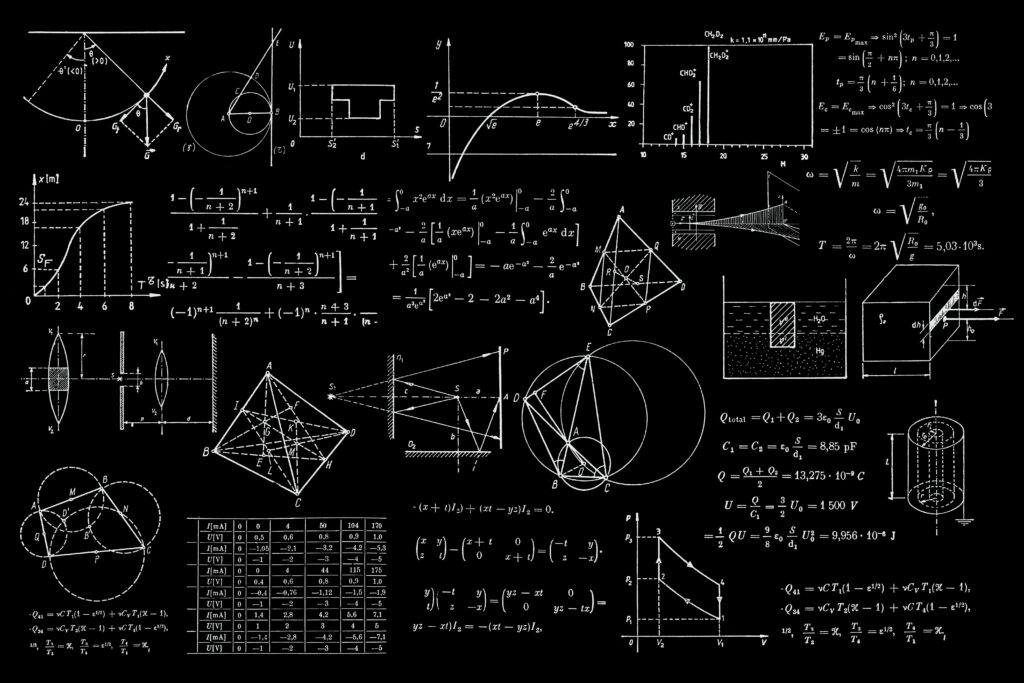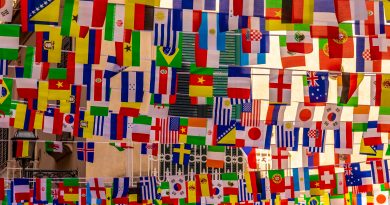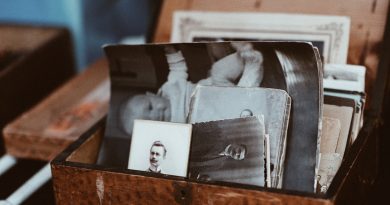Photo by Dan-Cristian Pădureț on Unsplash
Richard Feynman era um físico, ganhador do prêmio Nobel, e foi considerado um dos melhores professores de todos os tempos. Suas explicações, claras e sem jargões, de conceitos complexos, eram entendidas até mesmo por iniciantes. Era um apaixonado pelo ensino e também um aprendiz insaciável, nunca parava de aprender. Sua técnica de ensino e aprendizagem era extremamente simples e fácil de ser seguida.
Neste vídeo do canal Socratica você aprenderá como usar esta técnica maravilhosa para se destacar nos estudos.
| Audio | |
|---|---|
Normal | Slow |
| English Transcript | Tradução |
| Hello my Socratica Friends. | Olá, amigos socráticos! |
| We're here to help you be a GREAT student. | Estamos aqui para ajudá-lo a ser um ótimo aluno. |
| One of the greatest students of all time was also one of the greatest teachers of all time. | Um dos maiores alunos de todos os tempos foi também um dos maiores professores de todos os tempos. |
| Richard Feynman. | Richard Feynman. |
| Feynman was a Nobel Prize-winning physicist, and a professor at Caltech. | Feynman foi um físico vencedor do Prêmio Nobel, e um professor da Caltech. |
| He was a legend in the classroom. | Ele era uma lenda na sala de aula. |
| Many, or even most, scientists aren't really great at teaching. | Muitos, quase a maioria, dos cientistas não são ótimos docentes, realmente. |
| But Feynman had a way of connecting with students, even complete novices. | Mas Feynman tinha uma maneira de se conectar com os alunos, até mesmo com completos iniciantes. |
| People called him "The Great Explainer." | As pessoas o chamavam de "O Grande Explicador". |
| Symmetry seems to be absolutely fascinating to the human mind. | A simetria parece ser absolutamente fascinante para a mente humana. |
| We like to look at symmetrical things in nature, such as balls, which are perfectly symmetrical; spheres, like planets and the sun and so on; or symmetrical crystals, like snowflakes; flowers, which are nearly symmetrical, and so on. | Nós gostamos de olhar para coisas simétricas na natureza, como as bolas, que são perfeitamente simétricas; esferas, como planetas, sol e assim por diante; ou cristais simétricos, como flocos de neve; flores, que são quase simétricas, e assim por diante. |
| But it's not the object in nature - the symmetry of objects in nature - that I want to talk about tonight. | Mas não é sobre objeto da natureza - a simetria dos objetos da natureza - sobre a qual quero falar hoje à noite. |
| It's rather the symmetry of the physical laws themselves. | E sim, na verdade, a simetria das próprias leis físicas. |
| Now, how can a physical law have a symmetry? | Agora, como uma lei física pode ter uma simetria? |
| It's easy to understand how an object has a symmetry. | É fácil entender como um objeto possui simetria. |
| Of course, it can't! | Claro... Não pode! |
| But physicists delight themselves by using ordinary words for something else! {audience laughter} | Mas os físicos deliciam-se em usar palavras comuns para outras coisas! |
| And so, in this case, they have a thing about the physical laws | E assim, neste caso, eles têm algo sobre as leis físicas. |
| Which is very close to the symmetry of objects, and they call it the Symmetry of the Laws. | Que é muito próximo da simetria dos objetos, e eles chamam isso de Simetria das Leis. |
| A little bit of his magic was captured in the books "The Feynman Lectures on Physics." | Um pouco de sua magia foi registrada nos livros "As palestras de Feynman sobre física". |
| They've helped thousands of students. | Eles ajudaram milhares de estudantes. |
| Even before he was a professor, Feynman got a lot of experience teaching... himself. | Mesmo antes de ser professor, Feynman ganhou muita experiência ensinando ... ele mesmo. |
| But Feynman didn't limit his studies to physics. | Mas Feynman não limitou seus estudos a física. |
| He taught himself a lot of math, cryptography, biology, art, music, all about an obscure country called Tuva where they do throat singing... | Ele ensinou a si mesmo muita matemática, criptografia, biologia, arte, música, tudo sobre o desconhecido país chamado Tuva, onde eles executam o Canto Difônico... |
| He was just insatiably curious. | Ele apenas era um curioso insaciável. |
| Most professors lock themselves away in their office or their lab, but Feynman had this unusual habit of wandering into other departments and talking with students and professors outside of his field. | A maioria dos professores se trancam em seus escritórios ou laboratórios, mas Feynman tinha esse hábito incomum de vagar para outros departamentos e conversar com os alunos e professores fora de seu campo. |
| How did he get to be so conversant in so many areas? | Como ele se familiarizou tanto em muitas áreas? |
| By avoiding jargon and getting back to First Principles. | Evitando jargão e retomando os conceitos iniciais. |
| If you build any kind of apparatus, or do any kind of an experiment with things, and then go and build the same apparatus and do the same kind of experiment with similar things, but put them HERE, instead of there, merely TRANSLATE it from one place to the other, in space, then the same thing will happen in the translated thing that would have happened in the original thing. | Se você construir qualquer tipo de aparelho ou fazer algum tipo de experiência com as coisas, e então construa o mesmo aparato e faça o mesmo tipo de experimento com coisas semelhantes, mas coloque-as AQUI, em vez de lá, apenas TRANSLADAR de um lugar para outro, no espaço, então a mesma coisa acontecerá de forma transladada que teria acontecido na coisa original. |
| It's not really true, actually. | Na verdade, não é verdade. |
| If I actually built such an apparatus and then displaced it twenty feet in that direction, it would get into the wall, and there would be difficulties. | Se eu realmente construísse tal aparelho e depois deslocasse a seis metros naquela direção, ele entraria na parede e haveria dificuldades. |
| It's necessary, in defining this idea, to take into account everything that might affect the situation, so that when you move the thing, you move everything. | É necessário, ao definir essa idéia, levar em conta tudo o que pode afetar a situação, de modo que quando você move a coisa, move tudo. |
| For example, if the system involved a pendulum, and I moved it 20,000 miles to the right, it wouldn't work right anymore, because the pendulum involves the attraction of the Earth. | Por exemplo, se o sistema envolvia um pêndulo, e eu movi 20.000 milhas para a direita, não funcionaria mais, porque o pêndulo envolve a atração da terra. |
| But if I imagine I move the Earth and the equipment, then it will behave the same way. | Mas se eu imagino que movo a Terra e o equipamento, então ele se comportará da mesma maneira. |
| Feynman showed us - as long as you're logical, you can figure out almost any topic. | Feynman nos mostrou - desde que você seja lógico, você pode delinear quase qualquer assunto. |
| That's why this technique is named for him. | É por isso que essa técnica é atribuída a ele. |
| It's straightforward, and powerful. | É simples e poderoso. |
| Most people use the Feynman technique when they're preparing for a test, but you can use it anytime you want to teach yourself something. | A maioria das pessoas usa a técnica de Feynman quando está se preparando para uma prova, mas você pode usar sempre que quiser ensinar algo a si próprio. |
| It's a kind of sanity check - to make sure you're not just parroting back what you read in a textbook or heard in lecture. | É uma espécie de verificação de sanidade - para garantir você não está apenas repetindo o que você leu em um livro ou ouviu em uma palestra. |
| The Feynman technique lets you double-check that you REALLY understand what you've learned. | A técnica de Feynman permite que você faça uma dupla verificação e cheque se realmente entendeu o que aprendeu. |
| STEP 1: Pick your subject. | PASSO 1: Escolha seu assunto. |
| This is going to work best if it's a small, manageable topic. | Isso funcionará melhor se for pequeno, um tema viável. |
| For instance, covalent bonds - not all of inorganic chemistry. | Por exemplo, ligações covalentes - não toda a química inorgânica. |
| STEP 2: Write an explanation of the concept in very simple language. | PASSO 2: Escreva uma explicação do conceito em linguagem muito simples. |
| Imagine you're teaching covalent bonds to someone who doesn't know anything about chemistry. | Imagine que você está ensinando ligações covalentes a alguém que não sabe nada sobre química. |
| Picture a very bright, inquisitive child, who's going to point out any part of your explanation that doesn't make sense. | Imagine uma criança muito brilhante e curiosa, que vai apontar todas as partes da sua explicação que não fazem sentido. |
| Now, observe yourself, as you write out your explanation. | Agora, observe-se enquanto escreve sua explicação. |
| Is there any point where you're having a lot of trouble explaining the concept SIMPLY? | Existe algum ponto em que você está tendo muitos problemas para explicar um conceito SIMPLES? |
| That's it. | É isso aí. |
| That's the heart of the Feynman technique, right there. | Esse é o coração da técnica de Feynman, bem aqui. |
| That part that's a little too complicated is what you need to review, until you understand it well enough that you could explain it to a child. | Essa parte que é um pouco mais complicada é o que você precisa revisar, até entender bem o suficiente para que você possa explicar isso uma criança. |
| STEP 3: Go back to your textbook and your lecture notes, and review that complicated part. | PASSO 3: Volte ao seu livro as suas anotações e revise essa parte complicada. |
| Now try explaining it again. | Agora tente explicar novamente. |
| It can help to use analogies and pictures. | Usar analogias e imagens, pode ajudar. |
| Remember to avoid any jargon terms. | Lembre-se de evitar jargões. |
| STEP 4: Now go through your explanation again, and try to simplify it EVEN MORE. | PASSO 4: Agora repasse sua explicação novamente, e tente simplificá-la ainda mais. |
| Try it out on a friend who's not in your class and doesn't know anything about this topic. | Experimente com um amigo que não está na sua classe e não sabe nada sobre esse assunto. |
| Can you teach this subject to a novice? | Você pode ensinar esse assunto a um novato? |
| That's it - that's the Feynman technique. | É isso aí - essa é a técnica de Feynman. |
| Really, it's that simple? | Sério? É tão simples assim? |
| Surely you're joking, Socratica! | Certamente você está brincando, Socrática! |
| Here's a challenge for you: | Aqui está um desafio para você: |
| What's something you're studying that's REALLY complicated? | O que você está estudando que é MUITO complicado? |
| In the comment section below, try to explain it to us, in a few sentences. | Na seção de comentários abaixo, tente nos explicar em algumas frases. |
| Use the Feynman Technique! | Use a técnica de Feynman! |
| Then we can all discuss whether you are now a Great Explainer. | Então, todos nós podemos discutir se agora você é um Grande Explicador. |
| Want to help us make more great videos? | Deseja nos ajudar a criar mais ótimos vídeos? |
| Join the Socratica Team on Patreon! | Junte-se à equipe Socratica no Patreon! |
| Thank you for watching! 🙂 | Obrigado por assistir! 🙂 |
Contagem de palavras
A tabela abaixo exibe as palavras encontradas neste vídeo bem como o número de vezes em que aparecem.
Veja também: Para que serve esta tabela?
| Freq. | Palavra | Freq. | Palavra | Freq. | Palavra |
|---|---|---|---|---|---|
| 43 | the | 28 | to | 27 | of |
| 27 | a | 22 | and | 19 | in |
| 18 | you | 18 | it | 13 | feynman |
| 11 | that | 9 | it's | 8 | but |
| 7 | your | 7 | this | 7 | that's |
| 7 | symmetry | 7 | for | 6 | you're |
| 6 | was | 6 | technique | 6 | so |
| 6 | can | 6 | any | 5 | thing |
| 5 | then | 5 | really | 5 | or |
| 5 | on | 5 | now | 5 | not |
| 5 | is | 5 | if | 5 | I |
| 5 | he | 5 | great | 5 | an |
| 5 | all | 5 | about | 4 | with |
| 4 | use | 4 | try | 4 | there |
| 4 | symmetrical | 4 | students | 4 | step |
| 4 | same | 4 | out | 4 | kind |
| 4 | explanation | 4 | even | 4 | be |
| 4 | as | 3 | would | 3 | which |
| 3 | what | 3 | want | 3 | very |
| 3 | us | 3 | understand | 3 | topic |
| 3 | things | 3 | they | 3 | themselves |
| 3 | teaching | 3 | something | 3 | socratica |
| 3 | right | 3 | physical | 3 | part |
| 3 | one | 3 | nature | 3 | move |
| 3 | most | 3 | make | 3 | lot |
| 3 | like | 3 | laws | 3 | into |
| 3 | how | 3 | his | 3 | help |
| 3 | have | 3 | go | 3 | doesn't |
| 3 | do | 3 | complicated | 3 | back |
| 3 | at | 3 | are | 3 | apparatus |
| 2 | yourself | 2 | write | 2 | work |
| 2 | will | 2 | who's | 2 | where |
| 2 | when | 2 | we | 2 | way |
| 2 | time | 2 | their | 2 | textbook |
| 2 | teach | 2 | such | 2 | subject |
| 2 | simple | 2 | review | 2 | professors |
| 2 | professor | 2 | point | 2 | physics |
| 2 | people | 2 | pendulum | 2 | other |
| 2 | objects | 2 | object | 2 | more |
| 2 | many | 2 | little | 2 | lecture |
| 2 | know | 2 | just | 2 | jargon |
| 2 | imagine | 2 | himself | 2 | him |
| 2 | here | 2 | had | 2 | greatest |
| 2 | going | 2 | get | 2 | explaining |
| 2 | explainer | 2 | explain | 2 | experiment |
| 2 | everything | 2 | earth | 2 | covalent |
| 2 | concept | 2 | child | 2 | chemistry |
| 2 | check | 2 | called | 2 | by |
| 2 | build | 2 | bonds | 2 | anything |
| 2 | again | 2 | actually | 1 | you've |
| 1 | wouldn't | 1 | words | 1 | winning |
| 1 | why | 1 | who | 1 | whether |
| 1 | what's | 1 | we're | 1 | well |
| 1 | watching | 1 | wandering | 1 | wall |
| 1 | videos | 1 | using | 1 | unusual |
| 1 | until | 1 | twenty | 1 | tuva |
| 1 | true | 1 | trouble | 1 | translated |
| 1 | translate | 1 | too | 1 | tonight |
| 1 | through | 1 | throat | 1 | thousands |
| 1 | they've | 1 | they're | 1 | them |
| 1 | thank | 1 | test | 1 | terms |
| 1 | team | 1 | teachers | 1 | taught |
| 1 | talking | 1 | talk | 1 | take |
| 1 | system | 1 | surely | 1 | sure |
| 1 | sun | 1 | studying | 1 | studies |
| 1 | student | 1 | straightforward | 1 | spheres |
| 1 | space | 1 | someone | 1 | snowflakes |
| 1 | small | 1 | situation | 1 | singing |
| 1 | simply | 1 | simplify | 1 | similar |
| 1 | showed | 1 | sentences | 1 | sense |
| 1 | seems | 1 | section | 1 | scientists |
| 1 | sanity | 1 | richard | 1 | remember |
| 1 | read | 1 | rather | 1 | put |
| 1 | prize | 1 | principles | 1 | preparing |
| 1 | powerful | 1 | planets | 1 | place |
| 1 | pictures | 1 | picture | 1 | pick |
| 1 | physicists | 1 | physicist | 1 | perfectly |
| 1 | patreon | 1 | parroting | 1 | outside |
| 1 | original | 1 | ordinary | 1 | office |
| 1 | observe | 1 | obscure | 1 | novices |
| 1 | novice | 1 | notes | 1 | nobel |
| 1 | need | 1 | necessary | 1 | nearly |
| 1 | named | 1 | my | 1 | music |
| 1 | moved | 1 | mind | 1 | miles |
| 1 | might | 1 | merely | 1 | math |
| 1 | manageable | 1 | magic | 1 | look |
| 1 | long | 1 | logical | 1 | lock |
| 1 | limit | 1 | lets | 1 | legend |
| 1 | lectures | 1 | learned | 1 | law |
| 1 | laughter | 1 | language | 1 | lab |
| 1 | joking | 1 | join | 1 | involves |
| 1 | involved | 1 | instead | 1 | instance |
| 1 | insatiably | 1 | inquisitive | 1 | inorganic |
| 1 | idea | 1 | human | 1 | here's |
| 1 | helped | 1 | hello | 1 | heart |
| 1 | heard | 1 | having | 1 | has |
| 1 | happened | 1 | happen | 1 | habit |
| 1 | got | 1 | getting | 1 | from |
| 1 | friends | 1 | friend | 1 | flowers |
| 1 | first | 1 | figure | 1 | field |
| 1 | few | 1 | feet | 1 | fascinating |
| 1 | experience | 1 | example | 1 | equipment |
| 1 | enough | 1 | else | 1 | easy |
| 1 | double | 1 | displaced | 1 | discuss |
| 1 | direction | 1 | difficulties | 1 | didn't |
| 1 | did | 1 | departments | 1 | delight |
| 1 | defining | 1 | curious | 1 | crystals |
| 1 | cryptography | 1 | course | 1 | country |
| 1 | could | 1 | conversant | 1 | connecting |
| 1 | complete | 1 | comment | 1 | close |
| 1 | classroom | 1 | class | 1 | challenge |
| 1 | case | 1 | captured | 1 | can't |
| 1 | caltech | 1 | call | 1 | built |
| 1 | bright | 1 | books | 1 | bit |
| 1 | biology | 1 | best | 1 | below |
| 1 | behave | 1 | before | 1 | because |
| 1 | balls | 1 | away | 1 | avoiding |
| 1 | avoid | 1 | audience | 1 | attraction |
| 1 | art | 1 | aren't | 1 | areas |
| 1 | anytime | 1 | anymore | 1 | analogies |
| 1 | also | 1 | almost | 1 | affect |
| 1 | account | 1 | absolutely |










